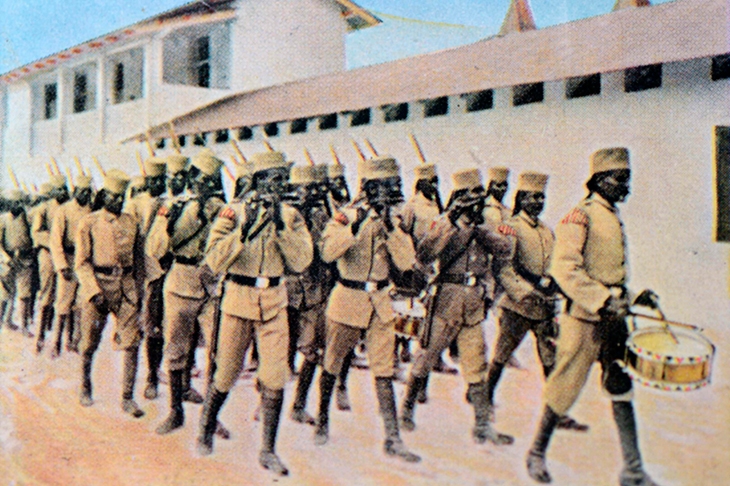‘That was how that part of the world was at the time. Every bit of it belonged to Europeans, at least on a map.’ That part of the world is East Africa, particularly what is now Tanzania, whose early-20th-century history is the backdrop to Abdulrazak Gurnah’s Afterlives. The novel spans the years preceding and during the first world war, when East Africa was colonised by the Germans and British.
The turbulent history of the region is relayed through the unanchored lives of three adolescents — Hamza, Ilyas and his sister Afiya. For various reasons, they find themselves uprooted and isolated from their families. Their life paths cross via Khalifa, a merchant of Gujarati Muslim descent with a generous spirit. His house forms the nexus of their colliding fates.
Most of the novel recounts the military lives of the askaris, a word coined from Swahili and Arabic for local soldiers serving in the Schutztruppe, the German Colonial Army. Gurnah writes plaintively about the askaris sharing swaggering tales of fighting someone else’s battle:
… slaughtering and being slaughtered by armies of people they knew nothing about: Punjabis and Sikhs, Fantis and Akans and Hausas and Yorubas, Kongo and Luba, all mercenaries who fought the Europeans’ wars for them, the Germans with their Schutztruppe, the British with their King’s African Rifles and the Royal West African Frontier Force and their Indian troops, the Belgians with their Force Publique…
Ilyas was kidnapped as a child by an askari. He later returns home to find that he has been orphaned and that his younger sister is living as a servant with her neighbours. Hamza was bonded as a child to a merchant in order to pay off a debt. He runs away and eventually enlists in the German army. Both the boys end up volunteering for Schutztruppe in the years leading up to the first world war and it is their experiences in the army that form the crux of the story. While the young men’s coming-of-age involves leading harrowing ‘fugitive’ lives, Afiya’s is about coming to terms with ‘endless resentments’ that are part of the ‘sequestered lives of women’. Gurnah writes about these contrasting experiences of youth with insight.
The story grounds historical fiction in a stolid narrative. There is an element of universality to the proceedings, despite the story anchoring itself temporally and geographically to a specific period in history. Gurnah deftly manages the feat by spiking his stirring indictment of colonial atrocity with the intimate ordinariness of itinerant lives.






Comments